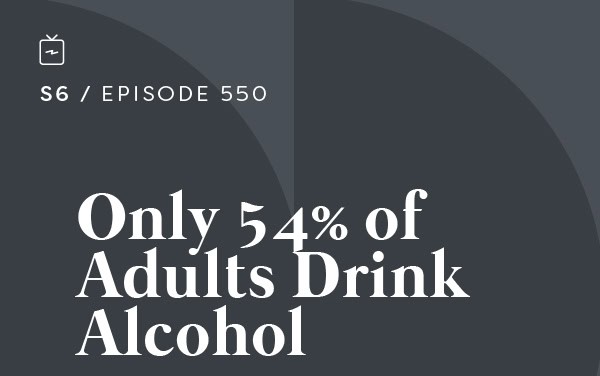
by Kris Oyen | Sep 1, 2025 | Podcast
Podcast: Play in new window | Download
Subscribe to the Recovery Elevator Podcast Apple Podcasts | | More
Today we have Odette. She’s 37 years old, lives in San Diego, CA and she took her last drink 486 days ago.
This episode brought to you by:
Better Help – 10% off of your first month #sponsored
Exact Nature – 20% off your order with code RE20
Registration is open for our next retreat in Costa Rica. That’s February 21st – 28th, 2026 in Guanacaste, a Blue Zone. We are over halfway full, but we have seven spots left.
[03:09] Thoughts from Paul:
When 17 people send Paul an article in the span of 2-3 days, he knows it means something big just came out… and this one is big because it disarms one of the biggest reasons why it’s so hard to quit drinking: everyone else is drinking. Which is no longer true. Several publication released this article and here’s the link for the CBS article.
It says – only 54% of U.S. adults say they drink alcohol, a record low.
There is a growing belief that even moderate alcohol consumption is a health risk which is 100% correct. In 2015 28% of Americans though this but now in 2025, that percentage has almost doubled to 53%.
While mostly younger Americans are driving this trend, but older Americans are getting on board as well and the alcohol industry is tanking. Paul says that he can’t help but feel that we all have had a part in this. That we, including you, the listener, have saved lives by doing our part getting the proper messaging out about alcohol, and people are listening.
So, you’re not the only one who doesn’t drink. Paul doesn’t drink, Odette doesn’t drink and 46% of Americans don’t drink either.
[07:57] Paul introduces Odette:
In addition to being interviewed on episodes 128 and 231, Odette was the podcast host from episode 277 to 378.
Odette is from Guadalajara, Mexico but has been living in San Diego, CA with her husband, two kids and a variety of pets. She works in operations for a company called Chosen Foods. Around a year ago, she began teaching breathwork as well. For fun, she and her family enjoy being outside, especially at the beach.
Odette shares that addiction runs in her family, her father, who recently hit 16 years sober, went into rehab when Odette was 18. At the time she was struggling with an eating disorder and clinical depression. She never expected alcohol to be a problem for her.
Odette moved to the US with her husband after she graduated college. She kept her eating, and depression issues a secret for about a year after they got married but ended up going into treatment for it because she knew she needed to be healthy in order to have kids.
After having their first child, Odette says that she fell into the “mommy wine culture” pretty quickly. Playdates included toys for the kids and wine for the moms. Over time she began to look forward to drinking but there was always a knowing that this wasn’t her authentic self, she says. The drinking helped her feel like she fit in.
The drinking and her eating disorder didn’t play well together. She found the lines getting blurry and she wasn’t listening to her body as well as before. Since she didn’t drink much, she wasn’t sure she really had a problem, but it was all taking a toll mentally.
During the time Odette was hosting the RE podcast, her grandmother got sick. She lives far from her family and the uncertainty of the situation and pain of not being there was too much for her. Even with all of her tools, Odette found herself relapsing. She struggled with the shame of it and felt a little lost but leaning into the community and learning how to accept herself has been important to getting her footing back.
Odette says recovery isn’t about fixing yourself, it’s about accepting all of the things that you are. Breathwork has been helpful for Odette to learn how to get back in touch with her body and be present.
The Harmony House
Odette Cressler
Recovery Elevator
You took the elevator down, you gotta take the stairs back up.
I love you guys.
RE on Instagram
Recovery Elevator YouTube
Sobriety Tracker iTunes
Café RE
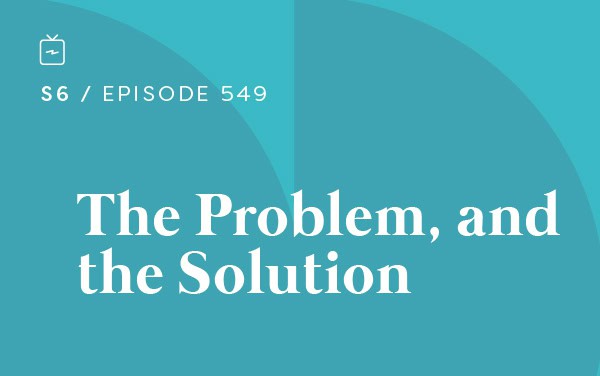
by Kris Oyen | Aug 25, 2025 | Podcast
Podcast: Play in new window | Download
Subscribe to the Recovery Elevator Podcast Apple Podcasts | | More
Today we have Justin. He is 40 years old and lives in Northern Ontario. He took his last drink on August 20th, 2023.
This episode brought to you by:
Better Help – 10% off of your first month #sponsored
Café RE – the social app for sober people
[04:03] Thoughts from Paul:
In our question for sobriety, we often ask ourselves why the drinking? Why can’t I stop? What’s the problem here?
Paul shares his experience with the 12 Steps of AA, more specifically, step 4 where you list all of your resentments. He filled an entire notebook for his fourth step and after reading this out loud to his sponsor, it became clear to him that he was at least 50% of every problem that he encountered or had been part of. The fourth step showed him the patterns, and the data was clear – he was the problem. The same is true for all of us.
It turns out, in a non-shaming way, you are the problem, and you are not the solution. This should be empowering because if you are the problem, you’re the only thing you can control. The solution is not a one and done thing. The big one here is to burn the ships and to start building community.
We used alcohol to numb the pains of living in a super challenging world, and the solution is that we have to find a better way to respond to the world and we have to come together to make this happen.
[08:39] Paul introduces Justin:
Justin is from Northern Ontario, has been married for 14 years and they have two dogs and cat. Formerly an electrician, Justin is now a part-time day trader. He enjoys hiking, yoga and meditation. Justin and his wife Danielle quit drinking together just over two years ago.
Justin had his first drink at age 15 with some friends. He didn’t see the point in drinking at first but was happy to have friends to drink with. Over time he not only enjoyed spending time with friends he also began to enjoy the drinking too.
At 18, Justin had a job with a sound and lighting company, and they would do a lot of concerts. He reflects that the amount of booze that was around and available to him for free was insane. Within the next two years he developed a habit of drinking 10 to 20 beers a day. In addition to the drinking, Justin had developed an addiction to harder drugs.
When Justin was around age 23, he quit the job and doing hard drugs but used alcohol to help him. This contributed to his intake increasing and he was still drinking daily. Because he wasn’t doing hard drugs anymore, he thought it was ok, and he was living clean. After Justin’s third DUI charge in 2015, he begins to realize that he might have a problem. He quit for five days and decided he didn’t have a problem, so he went back to drinking.
Living in a small town where many people drank more than them, Justin and Danielle had the illusion that they “weren’t that bad”. They enjoyed drinking together most of the time, but when they began fighting more often, they acknowledged that there might be an issue. They began trying moderation techniques, but eventually knew they just needed to stop altogether.
They drank one last time after losing their horse and Justin says he had the worst hangover the next day. They both had already been listening to the RE podcast and had joined Café RE. Justin is grateful to being doing this with his partner and they find strength in one another.
Justin was just diagnosed with a brain tumor, so they are planning a big move back to Southern Ontario to be closer to family. Being sober for these life changes is a gift, Justin says. When asked what his mantra has been for the last few months Justin says “go with the flow, keep on truckin’, be like water. You can’t fight life. Life is just going to push you as it pushes you and generally, you’ll get what you need”.
Justin’s parting piece of guidance: the only way out is through. You gotta go through it to move out of it.
Recovery Elevator
We took the elevator down. We gotta take the stairs back up.
I love you guys.
RE on Instagram
Recovery Elevator YouTube
Sobriety Tracker iTunes
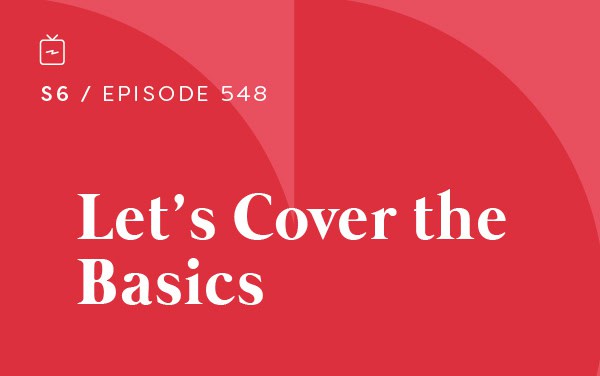
by Kris Oyen | Aug 18, 2025 | Podcast
Podcast: Play in new window | Download
Subscribe to the Recovery Elevator Podcast Apple Podcasts | | More
Today we have Amy. She is 41 years old and lives in Raleigh, NC. She took her last drink on December 12th, 2023.
This episode brought to you by:
Better Help – 10% off of your first month #sponsored
Exact Nature – use code RE20 to save 20% off of your order
October 2026 we have a new retreat we have yet to do. This is an in-person alcohol-free ukulele retreat taking place in Guanacaste, Costa Rica. There will be ukulele instruction in the mornings and Spanish immersion courses in the afternoon.
[02:01] Thoughts from Paul:
Addiction is disconnecting with the self and your fellow humans. More sobriety is connection with the self, your fellow humans and more. “I” equals illness, “we” equals wellness.
Quitting drinking is a perfect circle. Your drinking crisis is an opportunity for someone to help. Phrased with 12 step verbiage, your first step is someone else’s 12th step. And when you find your footing, you can then assist someone else in their drinking crisis.
When the soul is hurting, the healing only happens when you’re not alone. And speaking of being alone, listeners, you are not alone. You are not the only one who struggles with alcohol. You, along with the other listeners, are seeking not only sobriety but seeking a deeper connection with all. Seeking answers that the bottle can’t deliver. You are in the right place.
[07:37] Paul introduces Amy:
Amy is 41 years old and lives in Raleigh, NC with her husband and a three-year-old son. Amy says she is a theater nerd and does improv comedy for fun.
Amy grew up in the southwest side of Chicago where she says her father was an alcoholic. She has memories of being a child at AA and Al-Anon meetings with her parents as well as memories of her father taking her to bars when they would tell her mother they were somewhere else.
Amy had her first drink when she was 15 while going to a concert with older teens. There was a bottle passed around the group and they all got drunk. Later that night she was found in the field of the concert venue by paramedics and taken to the hospital to have her stomach pumped.
She began to live a double life throughout high school and college. Amy saw that if she got good grades and joined all of the clubs, she would get praise and recognition. On the flip side she would drink very hard, and it wasn’t uncommon for her to get alcohol poisoning. Only after going to grad school in New York was Amy able to calm down a bit.
After COVID, Amy and her husband were doing IVF. Amy says she didn’t drink much at this point, but after having the baby, she suffered from postpartum anxiety which led her to daily drinking as a tool to cope with it. Over time she would begin to try moderation but limiting herself to two drinks was difficult and led to binges.
Amy’s last bender was at a holiday work party. The next day she found herself hungover and asked herself how her drinking was any better than her father’s was when she was younger. She knew that she may be heading down a dangerous path, so Amy decided to call the local AA helpline.
Amy began going to AA meetings and found a sponsor. She shares that her mother was a great support because of her experience with Al-Anon and she understood what Amy was going through.
One of the best things for Amy was burning the ships and gaining accountability. Even after 18 months, Amy admits there is white knuckling at times. She realizes that after 25 years of drinking, it doesn’t all heal within 18 months, but she is grateful to be where she is and says that since getting sober, she hasn’t missed a day of her son’s life.
Amy’s parting piece of guidance: everything that she was looking for while getting drunk can be found in recovery and she found it in Café RE and AA. Take what works and leave the rest.
Recovery Elevator
It all starts from the inside out.
I love you guys.
Café RE – the social app for sober people
RE on Instagram
Recovery Elevator YouTube
Sobriety Tracker iTunes
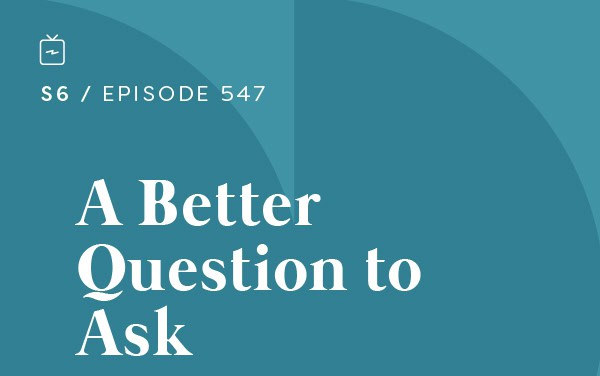
by Kris Oyen | Aug 11, 2025 | Podcast
Podcast: Play in new window | Download
Subscribe to the Recovery Elevator Podcast Apple Podcasts | | More
Today we have Brian. He is 40 years old from Spring Hill, MA and he took his last drink of alcohol on July 16th, 2024.
This episode brought to you by:
Better Help – 10% off of your first month #sponsored
Exact Nature – 20% off your order with code RE20
Shout out to these alcohol-free brands for sponsoring our seventh Bozeman Retreat:
Athletic Brewing
Sober Link – save 50% on a device
Rise Up Coffee
Better Rhodes – use code RECOV_EL_15 at checkout for 15% off
Odyssey Elixirs
[03:25] Thoughts from Paul:
Paul shares with us Bill W., the founder of AA once shared letters back and forth with Swiss psychologist Carl Yung looking for feedback on the program he was creating. Perhaps the most important letter from Yung to Bill W. was a letter suggesting a spiritual solution was needed to overcome addiction. He was a firm believer that addiction has nothing to do with weakness but is a misdirected cry for wholeness.
Another viewpoint that Carl Yung gave us is to not ask why you want to quit drinking but what pain you are trying to silence? Or what role is alcohol playing?
When we start asking the right questions and stop fighting the addiction, the healing process begins. If you keep doing your own inner work, the massive ship called your addiction will change course. It takes time to redirect the energy called an addiction, but when we start asking the right questions, it’s going to happen. It’s just a matter of time.
[07:36] Paul introduces Brian:
Brian is 40 years old and lives in Springfield, MA. He has been married 13 years, and they have two children. For fun he enjoys weight training, cooking, and spending time with his kids.
Brian is the oldest of four kids and his parents divorced when he was young. He shares that he internalized a lot of stuff growing up and carried a lot of emotion. Brian wasn’t the kid to act out, but he recalls the first time he drank was when his mother was out of town and he ended up getting very sick. He says it taught him a lesson, and he didn’t party much in high school.
In college, Brian says, alcohol acted like that warm hug that people talk about. It gave him a lot of confidence socially and he became friends with people older than him. Once they started graduating, he lost a lot of the friends he drank with, so he found himself drinking alone occasionally which he didn’t think there was anything wrong with.
After graduation, the job market was tough which had Brian stressed out and he began using alcohol as a coping mechanism. He was drinking daily and ended up getting pancreatitis after a while, which was a bit of a wake up call for him. The drinking didn’t end but Brian began to try and moderate.
Over the years Brian was able to quit for periods of time but would return to drinking to cope with traumatic events. He was working on sobriety, watching YouTube videos, trying naltrexone and listening to podcasts. He was making progress, but COVID came and knocked him down again.
Brian did not want to fall onto the same path that his father had with his alcoholism. Brian had a rock bottom moment when his behavior on a vacation had him showing a negative side of himself to his in-laws.
On the weekend of his wife’s birthday, Brian had a few days sober, and his internal voice was trying to convince him to drink. He turned on the RE podcast while he was mowing the lawn and soon after had made the decision that he was going to quit drinking forever. He then burned the ships and told his wife about his decision.
Since quitting drinking Brian’s health has improved, he has lost 35 pounds and has found a community in Café RE. He is planning on finding more connection locally to him through AA soon.
Brian’s parting piece of guidance: listen to your heart rather than your brain. Follow your instincts.
Recovery Elevator
You took the elevator down, you gotta take the stairs back up.
We can do this.
RE on Instagram
Recovery Elevator YouTube
Sobriety Tracker iTunes
Café RE
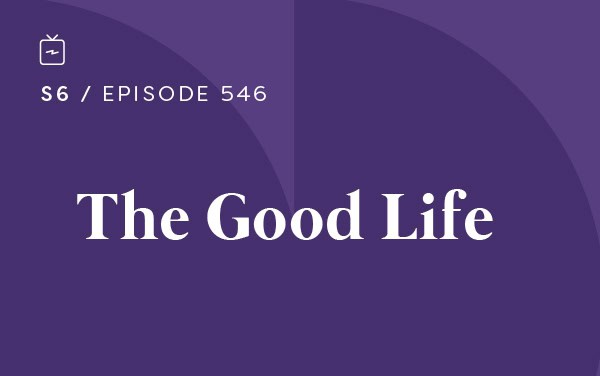
by Kris Oyen | Aug 4, 2025 | Podcast
Podcast: Play in new window | Download
Subscribe to the Recovery Elevator Podcast Apple Podcasts | | More
Today we have Lori. She is 58 years old from Vancouver, Canada. She took her last drink on February 21st, 2024.
This episode brought to you by:
Better Help – 10% off of your first month #sponsored
Café RE – the social app for sober people
[03:11] Thoughts from Paul:
Paul shares that his second book, Dolce Vita, is currently in the editing process and should be out by November this year. This was also the name of the bar he owned Spain when he was in his 20’s. The name is Italian for “the good life” which Paul once thought he could find at the bottom of a bottle. He began to notice that his Dolce Vita had an expiration date that would get shorter and shorter over time.
The thing Paul thought was delivering the dolce vita was slowly and methodically destroying any chance of having one. It wasn’t until he finally ditched the booze that the good life actually showed up. He learned that the sweetness wasn’t in escaping life, it was finally showing up for it.
The good life is right here in front of us all, right here in this moment, as long as we stay away from a drink today.
[09:19] Paul introduces Lori:
Lori is 58 years old and lives in the suburbs of Vancouver, Canada. She has been married for 37 years, and they have two grown children and one grandchild. Lori has been a realtor for 35 years and for fun she enjoys golf and physical fitness.
Lori shares that she had a great childhood, but her mother was an alcoholic, and it affected her negatively throughout the years. In high school, Lori aspired to be an actress and craved attention. Having an already outgoing personality, it just got bigger when she was drinking and garnered more attention.
Lori had a lot of resentments towards her mother over the years and admits she treated her poorly. They did not make amends before her mother passed, and Lori says that is when her drinking started ramping up. On the outside, everything was going well with her career and her kids, but the weekends revolved around drinking.
Some mornings Lori would wake up depressed, regretful of her actions the night before and be plagued with the “not again” feelings. Lori and her husband would discuss cutting back on drinking and she acknowledges that he only drank as much as he did because of her.
In 2022 Lori was able to quit drinking for 77 days with the help of This Naked Mind and participated in two 30-day alcohol experiments. Then something negative happened and Lori found herself reaching for a glass of wine. Before long she was drinking at any time of day, hiding alcohol in her sock drawer and sneaking shots of moonshine.
After a weekend trip with some friends where Lori could not get the happy buzz that she was looking for from the alcohol, she knew that something had to change. She joined the RE Ukelele course and decided to stick around. With the help and encouragement of some fellow members, she started to believe that maybe she could be alcohol-free.
Lori began going to a lot of chats with Café RE, first with the camera off just taking notes. She began to participate by asking questions and listening. The community has helped Lori find her mantra to hit the pillow sober every night. The first 30 days felt like the calendar was moving backwards, but she kept going.
Lori still stays social with her friends but has recently been feeling like she is at a crossroads. Some events that used to be fun no longer are and she is feeling a shift. The RE community means a lot to her and she is currently seeking more sober connections local to her.
Some of the bright lights in sobriety for Lori are the ability to be heard, being reliable, and she now feels better physically as well as mentally.
Lori’s parting piece of guidance: please decide your “whys” If the cons outweigh the pros, you need to take alcohol out of your life.
Recovery Elevator
You took the elevator down, you gotta take the stairs back up.
We can do this.
I love you guys.
RE on Instagram
Recovery Elevator YouTube
Sobriety Tracker iTunes
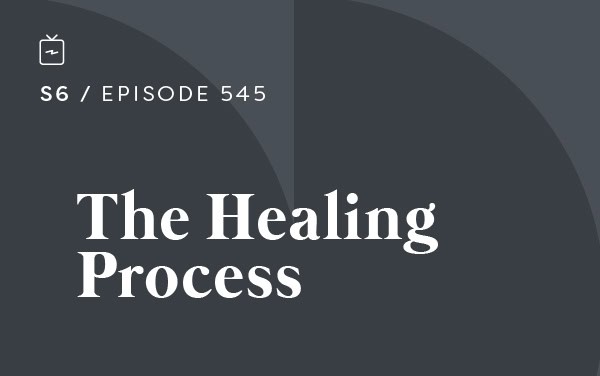
by Kris Oyen | Jul 28, 2025 | Podcast
Podcast: Play in new window | Download
Subscribe to the Recovery Elevator Podcast Apple Podcasts | | More
Today we have Rachel. She is 48 years old and lives in Minneapolis, MN. She took her last drink on August 28th, 2018.
This episode brought to you by:
Better Help – 10% off of your first month #sponsored
Sober Link – learn more and save $50 off of a device
Come join us in beautiful Bozeman, Montana this August 6th – 10th for our annual flagship retreat. We have a few camping spots as well as a few spots left in the men’s cabin.
[02:50] Thoughts from Paul:
Healing can look a bit like a paradox and Paul shares several examples showing this. Tying this same idea into ditching the booze we can say that quitting drinking can make you feel more anxious at first, when it’s actually making you calmer in the long run. Quitting drinking can make you feel more emotional and raw when it’s actually making you more resilient. Sobriety can make you feel bored at first, but it’s actually clearing space for hobbies and adventures that you’ll deeply enjoy.
Healing can hurt at first, but look out, brighter days are just on the horizon. Can you do this? Absolutely. Will there be stumbles, bad days? Without a doubt.
You can do this, you are doing this and you’re further along on your AF journey than you think. Keep moving forward.
[06:30] Paul introduces Rachel:
Rachel is 48 and lives just outside of Minneapolis, MN. She is married and they have three cats. She is a director in financial services and for fun she enjoys reading, writing and attending meet ups with other sober people.
Alcohol was always present when Rachel was growing up. She was an achiever in school and had already completed some college before graduating high school. Drinking was not a focus for her through her school years, and she didn’t start drinking until later in her life.
Around 2008 during the national financial crisis, Rachel says her drinking changed. Being a bond trader during this time was tough due to the uncertainty of the future. Rachel found herself having a drink after work and it became part of habit loop for her: go to work, come home, have a drink. Over the next 7 to 10 years, that one drink turned into multiple bottles.
Rachel was desperate to figure out how to solve this issue without drinking and tried moderation with no luck. She began reading books like This Naked Mind and listening to podcasts like RE. She felt the stories on the podcast were relatable because they were normal people and not the stereotypical bum under a bridge with the brown paper bag.
After hearing suggestions of trying to quit for 30 days, Rachel decided to try it and has been sober ever since. She says the first three days were hard but within seven days she was sleeping better than she ever had. Rachel began substituting wine with sparkling water and while it was tough at first, it became her new habit. She also joined Café RE and found community there and in AA.
Rachel recently self-published a book called Functional: A High Performer’s Guide to Achieving Freedom from Alcohol. She says she wrote a book that she wishes were available to her when she got sober. Many of the books out there have glaring rock bottom moments which Rachel said she didn’t have. She believes that it may sometimes be harder for people without a rock bottom to quit because it isn’t as obvious that they need to.
Rachel’s best advice to somebody that is functional is to just try to quit for 30 days and use it as a time of self-discovery.
Recovery Elevator
It all starts from the inside out.
I love you guys.
We can do this.
Café RE – the social app for sober people
RE on Instagram
Recovery Elevator YouTube
Sobriety Tracker iTunes








